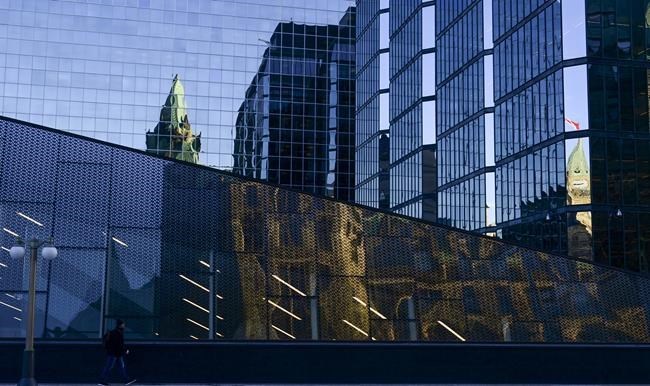OTTAWA — The Bank of Canada has left its economic aid package untouched, brushing off shortfalls in growth figures so far this year and seeing a more solid foundation for a strong rebound in the coming months.
First-quarter growth figures for the Canadian economy came in below the central bank’s forecast, and renewed lockdowns during the third wave of the pandemic have dampened economic activity.
BMO director of Canadian rates Benjamin Reitzes said the bank missed its first quarter forecast by 1.4 percentage points, and it's possible growth figures in the second quarter will also fall short of expectations.
Senior decision-makers at the central bank saw past those obstacles on Wednesday, saying they expect the Canadian economy to rebound strongly starting this summer, led by consumer spending as the pace of vaccinations picks up and provincial governments ease economic restrictions.
"They're still unfazed by the third wave and their miss in the first quarter," Reitzes said. "Their optimistic tone persist through all of this."
The bank kept its key policy rate on hold at 0.25 per cent on Wednesday, which is where it has been since the onset of the pandemic last year. The central bank has said it won't increase the rate until the economy has recovered that on Wednesday the bank said would likely happen in the second half of 2022.
A recovery in the labour market also remains a key factor in future bank decisions, said TD senior economist Sri Thanabalasingam. If employment bounces back quickly this summer, it could force the bank to raise rates sooner, he said.
The bank also said Wednesday that it will stay the course on its federal bond-buying activities after tapering purchases just a few weeks ago citing improving economic conditions. The purchases help drive down rates charged on mortgages and business loans.
The bank's governing council said inflation should hover around three per cent over the summer because of higher gas prices, which are being compared against the low levels of the early pandemic months.
Inflation should ease later this year, the bank said, returning toward the Bank of Canada's two-per-cent target.
Moshe Lander, a senior lecturer of economics at Concordia University, said the bank may hold off on any rate changes to not choke off any nascent rebound.
But the longer it holds off doing anything, the closer it will come to the fall and the likelihood of a federal election campaign.
The bank traditionally avoids any rate moves during an election period, not wanting its actions to be politicized and threatening its independence.
"Unless there's a clear economic signal that interest rates do need to be raised and it has to be done now, I think that the Bank of Canada's is probably going to try and sit this one out," Lander said.
When and how the central bank unwinds its monetary stimulus will have implications for fiscal policymakers, said Robert Asselin, senior vice-president policy at the Business Council of Canada.
Federal politicians, he said, could find themselves being forced to respond to inflation if voters raise concerns before or during a campaign, or if markets become more volatile. And when the bank starts raising rates, the federal government will face questions about whether it needs to keep open the taps of stimulus spending, Asselin said.
"It will be hard for policymakers to justify very open, loose fiscal policy, if monetary (policy) is basically saying, we think that we've recovered from the crisis," said Asselin, a former budget advisor to the federal Liberals.
This report by The Canadian Press was first published June 9, 2021.
Jordan Press, The Canadian Press



